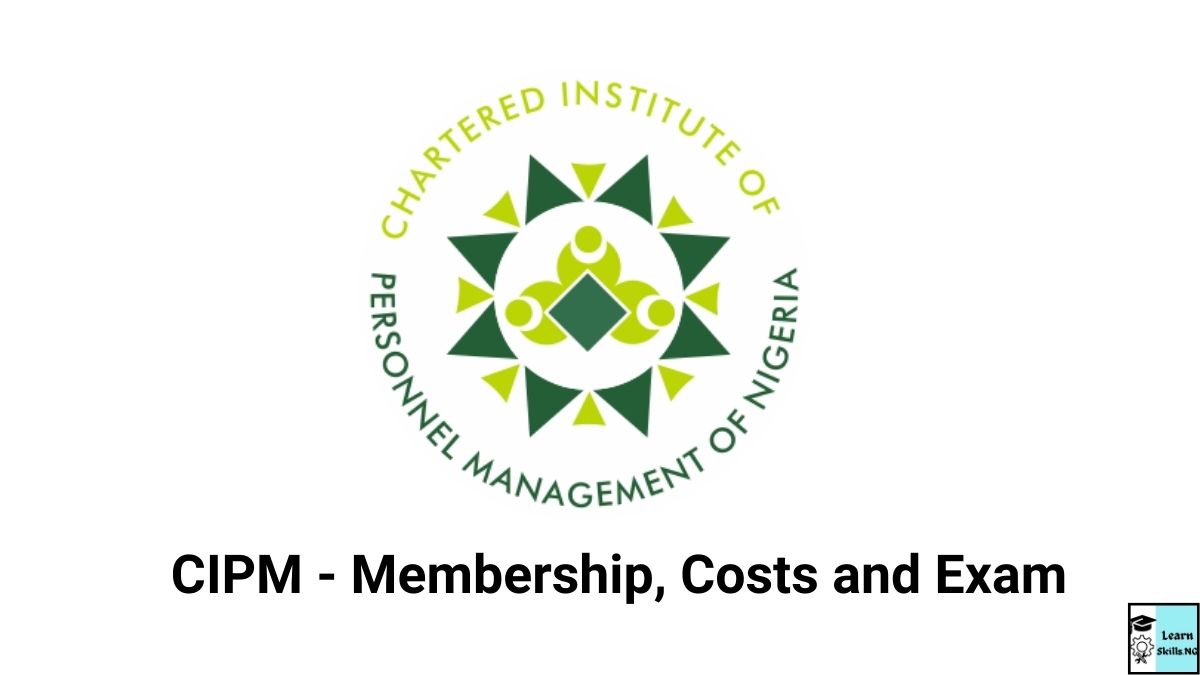Bankers play an important role in every country’s economy. In Nigeria, Banks are some of the most popular employers of labour. Becoming a chartered banker can create career opportunities for people interested in working in the banking sector. This is where the Chartered Institute of Bankers of Nigeria (CIBN) comes in.
The CIBN is the Umbrella association of bankers in the country that regulates the profession.
Membership of the CIBN provides unique advantages that can advance anyone’s banking career.
A career in banking can be a very promising career in Nigeria. It has led some to achieve remarkable financial success. Examples of some notable bankers in the country include Tony Elumelu, Jim Ovia, and Atedo Peterside.
In this article, I will delve into how to become a chartered banker in Nigeria and other details about the CIBN.
About the CIBN
The CIBN was established in 1963 as a local centre of the Institute of Bankers, London. The goal was to promote banking education and collaboration among bankers in the country.
The CIBN became chartered by Act No. 12 of 1990. It then became the Chartered Institute of Bankers of Nigeria.
The CIBN has as its core values integrity, professionalism, Innovation, and ethics. It also has a signed agreement for collaboration with the Chartered Institute for Securities and Investment.
Roles of CIBN
The CIBN has been saddled with several responsibilities which include;
- To determine the standards of knowledge and skills to be attained by people who want to become members of the banking profession.
- To establish and maintain a register of members of the banking profession.
- To Conduct professional examinations that lead to the award of certificates as prescribed by the institute.
- To ensure the maintenance, observance, and furtherance of ethical standards among practitioners of the banking profession in Nigeria.
Career opportunities for chartered bankers
Becoming a chartered banker comes with several benefits which include;
- Recognition in the banking industry as someone with the required knowledge and skills to carry out banking operations in the modern world. This recognition opens up new opportunities to work in specialized fields in the banking sector.
- It creates opportunities to receive mentorship from other members of the Institute which can also accelerate your career.
- The reputation and trust gained from achieving chartered status can give you a competitive advantage when working in the banking sector.
However, you should note that simply being a chartered banker doesn’t guarantee a good job in Nigeria. You would have to differentiate yourself with the skills you have acquired from your training and certifications.
How to become a chartered banker in Nigeria
There are several types of membership of the CIBN.
However, to become a chartered banker, one has to pass the Chartered banker exams and qualify as an associate member of the CIBN.
I will go over the various types of membership of CIBN
Memberships of the CIBN
The CIBN has individual and corporate memberships. Corporate members include regulators like the CBN, deposit money banks, Mortgage banks, Development banks, etc.
I will go over the types of individual memberships below;
Ordinary Member
To become an Ordinary member you need to have either an O’ level certificate (SSCE) or an OND from a recognized Polytechnic before you register
Other acceptable qualifications include; NCE, TTC, and other relevant A’ Level qualifications.
Student Member
To become a student member you need to either hold a higher degree from a recognized tertiary institution (BSC, B.A, B.ED, B.TECH, HND, etc) or pass the Institutes Diploma Examinations before you register.
This would qualify you to commence the Microfinance Certification Examinations or Chartered Banker Examinations.
Associate member (ACIB)
To become an associate you have to be a student member who has passed the Chartered Banker examinations.
After successfully passing the examinations you would be inducted as an Associate of the Institute.
Honorary Senior Member
To become an honorary senior member, you have to get a favorable vote from the governing council to that effect.
To attain this, you must meet the following criteria;
- You must have obtained such academic, professional, or other qualifications as prescribed by the Governing Council.
- You must have held a senior management position in a bank or other financial institution.
- You should neither be a Fellow nor an Associate of the Institute.
- You should either be an Assistant General Manager (AGM) or above in a bank or a Lecturer 1 in a tertiary institution.
Honorary Fellow
To become an honorary fellow you must have supported and contributed immensely to the growth of the Institute and the Nigerian banking sector. Members with honorary fellowships are carefully selected and conferred with the Fellowship after a favorable vote of the Governing Council.
Fellow
To achieve Fellow status you must have been an Associate for 10 years and above. You must also have satisfied all other criteria specified by the Governing Council.
Routes to become a chartered banker
There are various routes for achieving chartered banker status. I will detail them below.
| S/N | Route | Requirements |
| 1 | Regular Route | A good first degree in a relevant subject and at least three years of relevant managerial experience An approved professional qualification and at least three years of relevant managerial experience If you hold a recognized MBA, you may qualify for the super-accelerated programme |
| 2 | Linkage Route | You must be a student of Banking and Finance in a tertiary institution that is under the Linkage Programme of the CIBN |
| 3 | Practitioners’ Route | 10 years of relevant experience in the Banking & Finance Industry. You must have attained a minimum of a Manager grade. You must have obtained academic or professional qualifications such as B.Sc/HNDACA, ACIS, ACIPM, and any other qualification as may be prescribed by the Governing Council from time to time |
| 4 | Chartered Banker/MBA Route | A good first degree in a relevant subject and at least three years of relevant managerial experience. An approved professional qualification and at least three years relevant managerial experience. If you hold a recognized MBA, you may qualify for the super-accelerated programme. |
| 5 | Certification Route | Successful completion of relevant Certification Programmes which will qualify you for exemptions in flagship ACIB examinations |
CIBN Exam structure
The Institute’s exams are in three levels which include;
- Diploma Level consisting of 8 subjects.
- Intermediate professional level consisting of 6 subjects.
- Chartered Banker level consisting of 4 subjects.
CIBN exam cost
| Exam level | 1 Subject (N) | 2 Subject(N) | 3 Subject(N) | 4 Subject(N) | 5 Subject(N) | 6 Subject(N) |
| Diploma | 17,000.00 | 23,500.00 | 31,500.00 | 41,000.00 | ||
| Intermediate Professional | 27,500.00 | 40,750.00 | 54,000.00 | 67,250.00 | ||
| Chartered Banker | 35,000.00 | 52,000.00 | 69,000.00 | 86,000.00 | 103,000.00 | 120,000.00 |
You can pay the examination fees using the following bank details;
First Bank Of Nigeria Limited- 2000607939
Access Bank PLc- 0019395540
Payments can also be made using Quickteller.
Exemptions in CIBN
Exemptions are waivers to the CIBN exams based on the candidate’s academic qualification.
They are granted based on the routes to certification taken. I will detail the exemptions by the various routes below;
Regular route– Depending on qualifications, ranging from 1 to 15 subjects are exempted
Linkage Route– Depending on qualifications, ranging from 5 to 14 subjects are exempted
Practitioners Route- Depending on qualifications, a minimum of 9 subjects are exempted
Bank Academy Route- Depending on qualifications, ranging from 8 to 13 subjects are
exempted
Certification Route- This varies and would apply as long as relevant certification has been completed.
CIBN Membership fees
Below is the annual subscription fee for CIBN members;
| S/N | Membership | Subscription fee |
| 1 | Ordinary member | N 1000 |
| 2 | Student member | N 3000 |
| 3 | Associate member | N 9000 |
| 4 | Honorary Senior member | N 22,500 |
| 5 | Honorary fellows | N 25,000 |
| 6 | Fellows | N 25,000 |
How long does it take to become a chartered banker
It takes about 18 months to become a chartered banker. This is the amount of time it should take you to complete your exams.
Conclusion
For people interested in the banking profession, getting the CIBN qualification would demonstrate your passion and commitment to high professional standards as a banker.
The CIBN does not guarantee you a job but it can improve your chances of starting a career in specialized areas of banking.
Frequently Asked Questions
Is ICAN better than CIBN
Every profession has its unique value. But if you are more interested in getting an entry-level role in finance, then the ICAN is a better option.
How much is a banking license in Nigeria
For a regional banking license, the minimum paid-up share capital should be about N10 billion, for a national bank it is N25 billion while for an international commercial bank, it is N50 billion.










